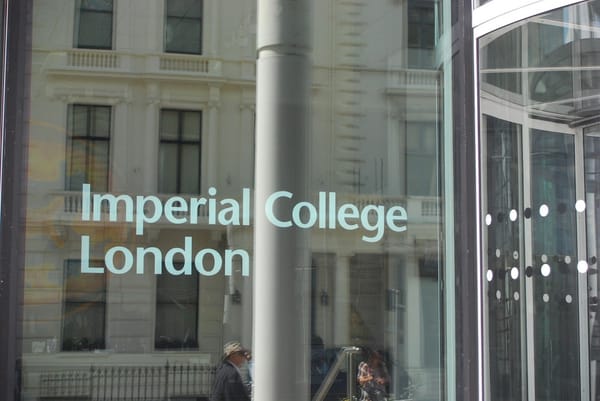New Report Published About Animal Research Problems at College
"Pattern of infringements that reflected underlying systemic failings" at College according to a new report published by the Animals in Science Committee

“The regime at ICL [Imperial College London] clearly fell short of the standard required by the Animals (Scientific Procedures) Act 1986 (ASPA)” according to yesterday’s report by the government’s Animals in Science Committee (ASC).
The report, carried out by a Working Group of the ASC, provides a set of recommendations to Norman Baker MP, Minister for Crime Prevention at the Home Office.
According to the report “The HOI [Home Office Inspectorate] investigation identified a pattern of infringements that reflected underlying systemic failings of the kind set out in the independent report. In particular, failings of culture and communications impeded the promotion of best practice and the 3Rs, whilst NACWOs and biomedical staff were insufficiently involved in procedures and post-procedure recovery. This was symptomatic of a deeper failure of leadership, giving rise to, and in turn compounded by, an inadequately-resourced Biomedical Services senior management team.”
The report recommended that the Minister should “consider whether he can continue to have confidence in the current ELH [Establishment Licence Holder] at ICL retaining this role”. It also stated that, “Licence holders should ensure that all those involved with work under ASPA have a readily accessible means of raising ‘causes for concern’ with the management of their establishment, and the HOI’s mandate should extend to monitoring these arrangements.“
The report also mentions that "a pattern of concerns" were discovered by the Home Office Inspectorate after 15 visits to College in 2012. It states, "The underlying failings of leadership, management and culture noted above were ... of a kind that should have been evident to visiting inspectors." It also reveals that at the time the HOI were waiting for the (then) new Establishment Licence holder to "bed in", and would have go on to raise issues with the College if the BUAV 2013 investigation had not been published.
A College spokesperson said: “The College has noted the Animals in Science Committee (ASC) Lessons to be learnt report. The College is surprised that the report does not refer to Imperial’s comprehensive Action Plan for World-Class Animal Research published in January 2014.
The College has made substantial progress in implementing changes set out in the Plan. These build on the good standards of animal husbandry identified in the Brown Review and are enabling the College to build a new culture around animal research by establishing and promoting best practice, and taking ethical, welfare and 3Rs issues into account at every level.
More information about these changes is at http://www3.imperial.ac.uk/newsandeventspggrp/imperialcollege/newssummary/news_2-7-2014-14-23-12.
_ The College offered to meet members of the ASC, and is disappointed that the report was published without the Committee taking up this invitation or having any direct contact with the College._
The Establishment Licence Holder (ELH), who has served in this role since May 2012, has strengthened the College’s governance and operational management of animal research. Imperial fully supports his leadership and handling of responsibilities as ELH.”
The report also provided recomendations to the Minister about improvements that could be made to the way in which the Home Office Inspectorate handles similar cases. Namely, it suggests that HOI staff should receive guidance on how to deal with low level concerns in regards to animal research, while the organisation should also review is risk assessment system to accurately identify "establishments where there may be an unacceptable risk of non-compliance and/or inadequade provision".
Michelle Thew, Chief Executive of the BUAV (the organisation that carried out the covert investigation in 2013) stated: "The conclusions of this report will have major ramifications for Imperial College as well as the rest of the research industry. If such criticisms can be levelled at one of the world’s leading universities, then it is inevitable that similar issues arise in research establishments all over the country. Significantly, only the BUAV investigation accelerated action despite ‘a pattern of concerns’ having been identified by the Home Office Inspectorate as early as 2012. … We now expect strong action to be taken against Imperial College for its failings."






